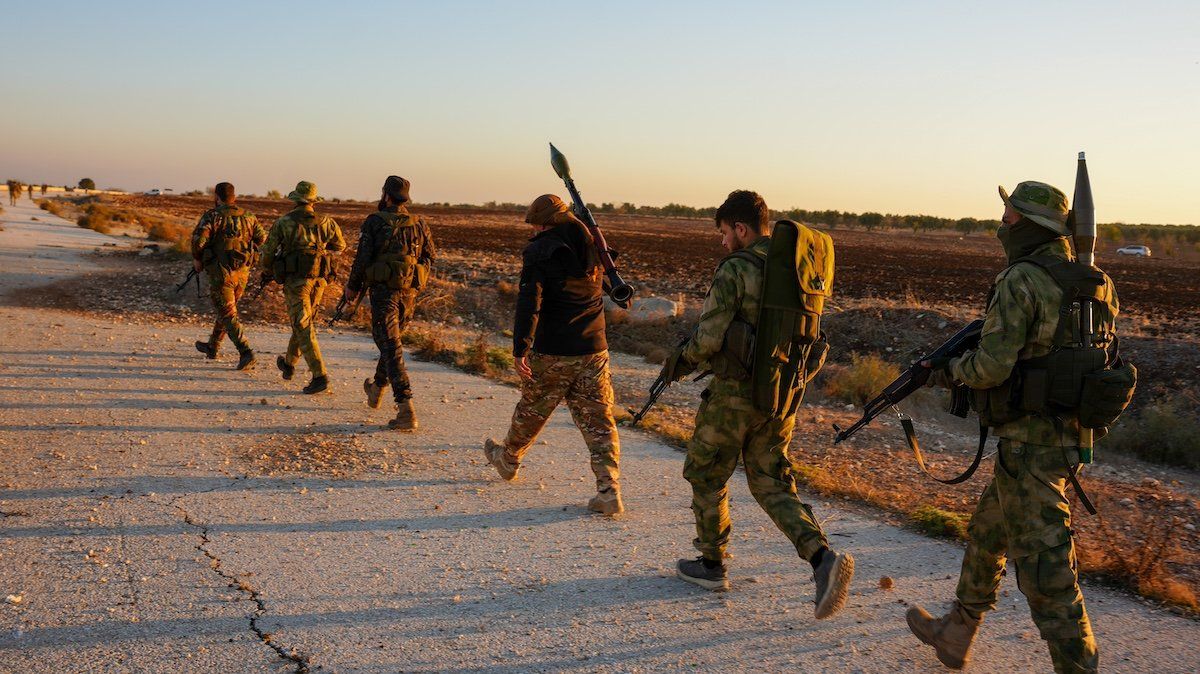In case anyone has forgotten just how complicated Syria’s civil war always was, the recent drama around Aleppo escalated on Monday as the Syrian National Army, a group backed by Turkey, attacked US-backed Kurdish groups near the city.
Meanwhile, Hayat Tahrir al-Sham, or HTS, the formerly al-Qaida-linked Islamist group at the forefront of the recent rebel offensive in Aleppo, has reportedly ordered Kurdish militias to leave the area altogether and go eastward to Rojava, a de facto autonomous Kurdish area in northeastern Syria.
Aren’t the Kurdsagainst the Assad regime, too? Yes, but that’s not the beef. HTS works with the Turkish proxies and relies on Ankara for political support in high-level negotiations to end the war. Turkish President Recep Tayyip Erdogan is angling for an advantageous position on the war’s aftermath and said his “greatest wish” was “for the instability that has been going on for 13 years to end.”
For Turkey, that means both weakening Syrian President Bashar al-Assad and cutting the Kurds down to size, as it has long-standing problems with Kurdish separatists at home.
Don’t forget, Turkey is also a US ally — a NATO member, in fact — so urging its proxies to fight US proxies in a theatre where Russian forces also actively operate causes headaches in Washington. Russian warplanes bombed rebel-held areas of Aleppo on Monday, not far from where Turkish F-16s shot down a Russian Su-24 that strayed over the border in 2015. Quite an explosive position for a lame-duck US president.
Speaking of proxies… Iran-backed militias crossed into Syria from Iraq to help shore up Assad’s counterattack as well. Assad will be glad for that help as the Lebanon-based Iranian proxy group Hezbollah, once a major pillar of support for Assad’s regime, said Monday it would not deploy fighters to Syria right now. The group is still regrouping after getting mauled by Israel and is warily watching as last week’s ceasefire in that conflict appears to be breaking down already.
Where is the US in all this? Washington had reportedly held talks before the Aleppo offensive with the UAE about lifting sanctions on Syria in exchange for Assad distancing himself from Iran and Russia. That seems unlikely now that Assad’s back is against the wall and he needs all the help he can get. Beyond milquetoast calls for de-escalation, Washington has thus far kept its cards close to its vest.
